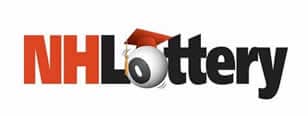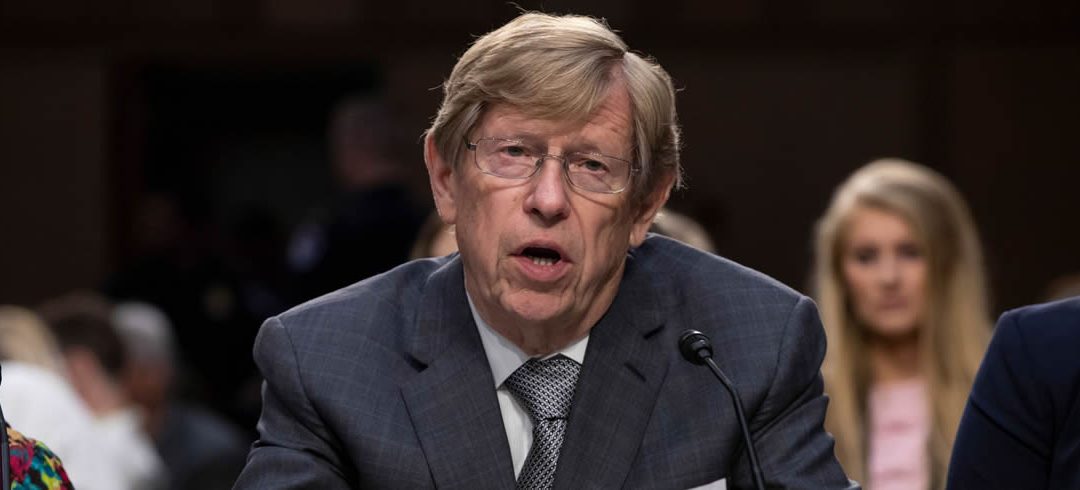While the Wire Act lawsuit filed by the New Hampshire Lottery against the Department of Justice late last week has been making waves, another claim filed on the same day has also come to light.
Attorney Theodore “Ted” Olson of Gibson, Dunn & Crutcher and other members of counsel issued a suit on behalf of NeoPollard Interactive LLC and Pollard Banknote Ltd. on February 15.
Who Are The Major Parties Involved?
Ted Olson has influenced several key cases related to sports law, most notably the Murphy v. National Collegiate Athletic Association (formerly Christie v. NCAA) case that ended the 25-year ban on sports betting across the majority of the United States.
Former Governor Chris Christie enlisted Olson for representation during the case, with the attorney writing the brief that was filed with the U.S. Supreme Court. NFL fans might also remember Olson’s name from the 2011 NFL lockout and his through his client Tom Brady during the Deflategate scandal. Matthew D. McGill of the same firm and Michael A. Delaney of McLane Middleton are also serving as attorneys on the case.
 NeoPollard is the technology vendor that operates New Hampshire’s iLottery system. NeoPollard is a joint venture between Pollard Banknote and NeoGames, with both companies holding a 50% stake in the iLottery gaming company. NeoPollard provides digital services to regulated lottery clients all over the country.
NeoPollard is the technology vendor that operates New Hampshire’s iLottery system. NeoPollard is a joint venture between Pollard Banknote and NeoGames, with both companies holding a 50% stake in the iLottery gaming company. NeoPollard provides digital services to regulated lottery clients all over the country.
A Brief On The Wire Act
The reason that the iLottery service providers are suing the U.S. Justice Department stems from its decision to reverse the 2011 opinion regarding the Wire Act.
The Wire Act is a 1961 law that was pushed by Robert F. Kennedy in an attempt to combat organized crime. Being that racketeering was one of the main sources of income for the mob, Kennedy’s solution was to make it illegal for illicit bookies to profit from their activities by targeting their main mode of communication—telegraphs, a.k.a wire communications. An excerpt from 18 U.S.C. 1084 reads:
“Whoever being engaged in the business of betting or wagering knowingly uses a wire communication facility for the transmission in interstate… wagers or information assisting in the placing of bets or wagers on any sporting event or contest, or for the transmission of a wire communication which entitles the recipient to receive money…shall be fined under this title or imprisoned…”
The initial interpretation that was presented during the Obama administration specified that the Act only applied to online sports betting. However, the Nov 2, 2018 opinion released by the Office of Legal Counsel states that the language in the Act is unambiguous and also applies to non-sports related gambling.
Inside The Lawsuit
In NeoPollard Interactive LLC et. al. v. William Barr et. al., the plaintiffs submitted a complaint for declaratory relief. Their counsel argued that the reinterpretation could effectively shut down the online gaming market for poker, casino gaming, and lottery products. He notes that ten states have established online gaming markets of some form based upon the 2011 Opinion, and that the new declaration could call into question their legality.
“As a result of the OLC’s erroneous change in position, gaming activities long thought to be lawful are now under threat of imminent criminal and civil prosecution,” wrote the lawyers for the plaintiffs in the complaint. “This includes not only making lottery products available to consumers for purchase via personal computers and mobile devices, but also traditional lottery sales via brick-and-mortar retail sales agents.”
NeoPollard Interactive operates the online lottery ticket sales for not only New Hampshire, but states like Michigan and New Hampshire as well. Under the revised OLC opinion, companies like NeoPollard’s that serve various markets could risk prosecution under the Racketeer Influenced and Corrupt Organizations Act.
“The Justice Department’s new Wire Act opinion is quite literally a lawless act,” McGill said in a statement Friday. “This opinion would subject to felony prosecution conduct that two courts of appeals, including the First Circuit, have said is lawful.”
NeoPollard and Pollard Banknote addressed both federal court of appeals cases in their lawsuit, citing In re Mastercard Int’l, Inc., Internet Gambling Litig. (5th Cir. 2001) and United States v. Lyons (1st Cir. 2014). These are the only two cases that have ever tackled the applicability of non-sports gambling-related activities to the Wire Act, and each court ruled in favor of the federal legislation only applying to sports wagering.
Why The Wire Act Matters
Aside from the legal implications for online gaming operators, attorneys for NeoPollard and Pollard Banknote are also concerned from a financial standpoint. While the iLottery is relatively new, having launched in New Hampshire last September, the product is expected to generate anywhere from $4 billion to $6 billion this fiscal year.
The Wire Act has also been challenged by those in other industries as well, especially with the expansion of regulated sports betting in the U.S. While the necessity and applicability specifically to online sports betting in legal states is a separate issue, New Hampshire could find themselves going up against the law for different reasons in the future.
If the current opinion of the Wire Act remains intact and one day enforceable, it could become an issue should the New Hampshire Lottery be the governing authority over sports betting. If their iLottery is technically illegal, it could impact potential online sports betting products as well.
The Next Steps
Olson and his team are looking for the same clarification that the New Hampshire Lottery is aiming for in their lawsuit against the U.S. DOJ. Being that the 2018 DOJ Opinion included language that gives operators a 90-day compliance window, the request for a declaration of the Wire Act only applying to sports betting is time-sensitive.
Rule 12(a)(2) of the Federal Rules of Civil Procedure gives federal government agencies up to 60 days to respond to such legal proceedings, which means that an answer should be filed by April 16.
Advertising Disclosure
In order to provide you with the best independent sports betting news and content LegalSportsBetting.com may receive a commission from partners when you make a purchase through a link on our site.
News tags: DOJ lawsuit | NeoPollard Interactive | New Hampshire | New Hampshire iLottery | Pollard Banknote | Wire Act lawsuit

Andy has been writing professionally for nearly two decades, with the last three years being dedicated to his primary passions: sports wagering news and gambling industry analyses. A walk-on punter, Andy has a particular interest in professional football, baseball, and horse racing betting. Come early May, you can always catch Andy – clad in all white, mint julep in hand – on Millionaires Row at Churchill Downs. In his dreams.


 Bitcoin Sports Betting Sites
Bitcoin Sports Betting Sites Best Online Sports Betting
Best Online Sports Betting Famous Sports Bettors
Famous Sports Bettors States With Legal Sports Betting
States With Legal Sports Betting Sports Betting Events
Sports Betting Events




